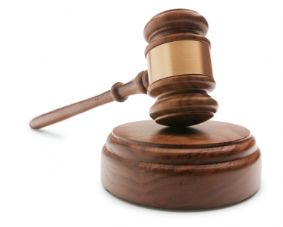The Supreme Court in the Philippines has temporarily restrained the government from enforcing a new controversial cyber law, in response to petitions from civil rights and journalists groups in the country.
In a temporary restraining order (TRO), the court on Tuesday enjoined the government from implementing or enforcing the Cybercrime Prevention Act of 2012, which makes online libel a cybercrime with the prospect of being punished twice for one act, allows the authorities to take down a website alleged of violating the cyber law without judicial review, and also provides for collection of real time traffic data without a warrant or judicial order, according to its critics.
By punishing libel as a cybercrime simply because it is committed through a computer system, the clear intent of the provision of the Act is to single out Internet users in their chosen medium of expression, according to one of the 15 petitions before the Supreme Court.
The court has ordered that the respondents including the office of the country’s solicitor general comment on the case within 10 days. The oral arguments for the case have been set for 15 January.
The new Act, also known as the Republic Act No. 10175, was signed into law by the country’s president Benigno S. Aquino III last month, and took effect from 3 October.
It has been noted for other provisions, such as banning cybersex, which is defined as the "willful engagement, maintenance, control, or operation, directly or indirectly, of any lascivious exhibition of sexual organs or sexual activity, with the aid of a computer system, for favor or consideration."
Civil rights groups and journalist organisations have welcomed the Supreme Court decision. The TRO signals that the court under chief justice Maria Lourdes Sereno will remain independent and attuned to the sentiments of the Filipino people, said Philippine Internet Freedom Alliance (PIFA) in a statement.
PIFA however called on the people to remain vigilant as the Supreme Court can still choose to later on lift the TRO "under pressure from anti-democratic forces who want to see the Cybercrime Prevention Act implemented".
Faced with protests including the hacking of government websites, the government earlier this month sounded a conciliatory note, stating that no government entity has moved to deprive anyone of access to the Internet or to suppress civil liberties online.
"In fact what has taken place is that hackers who claim to be aligned with critics of the Cybercrime Act are the ones who have engaged in online vandalism, depriving the broader public of access to much needed government information and services online," it said in a statement which indicated that there was still an opportunity for "reasonable discourse".
IDG News Service







Subscribers 0
Fans 0
Followers 0
Followers